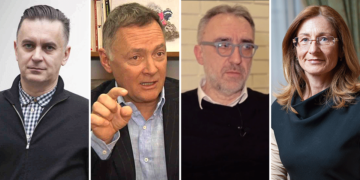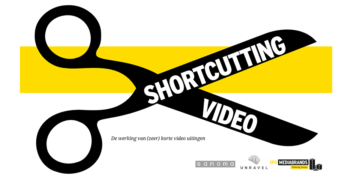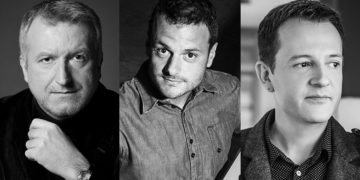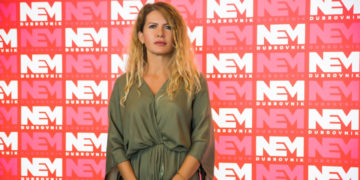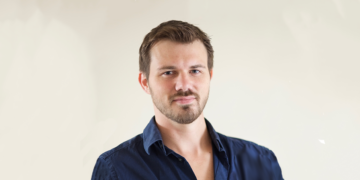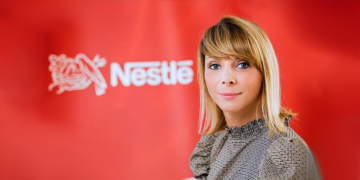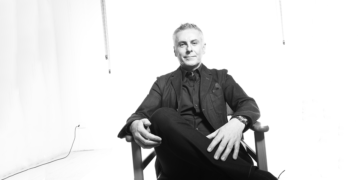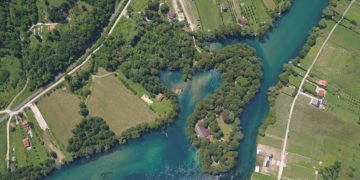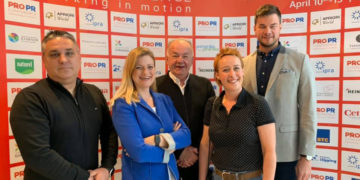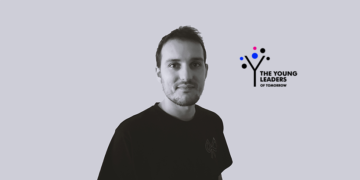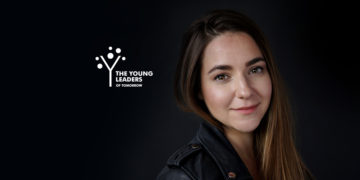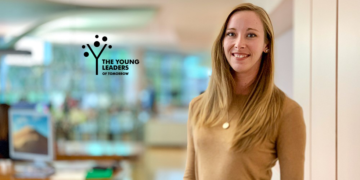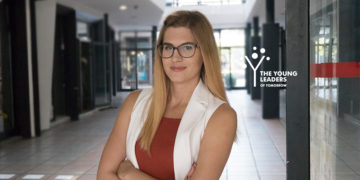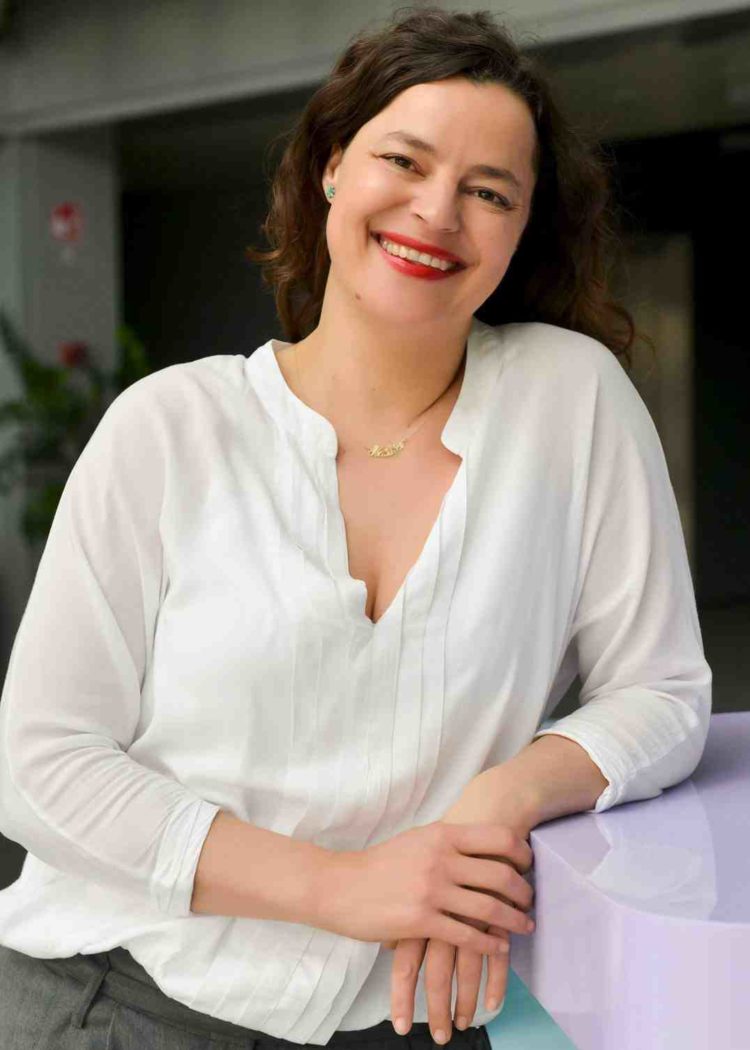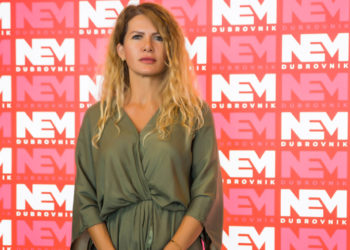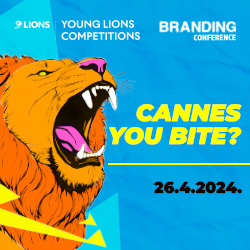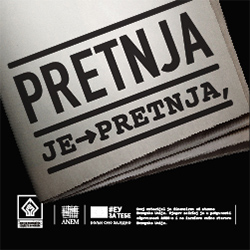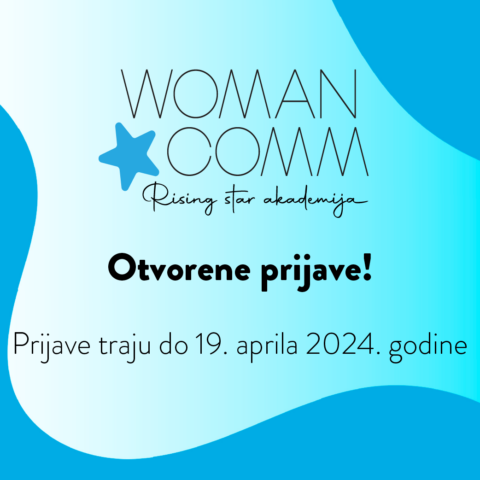Drugi jezik na kojem je dostupan ovaj članak: Bosnian
Nastja Mulej, the only licensed instructor for teaching creativity through the methods of Dr. Edward De Bono, believes that the time has finally come for women to show what they’ve got. “It’s probably true of almost all industries. Due to the frequency of childbearing and the absence of any social state, women were once the foundation of the four pillars of the family, and men of society. And then it slowly came to a turning point, brought by the Second World War, when all hands and minds on deck were needed, regardless of gender, and then particularly later, due to invention of birth control pills, and even the washing machine and other appliances that helped women in their domestic work, which enabled them to slowly turn to business and test themselves in that world – either from necessity or their own will.”
Nastja rightly believes that contemporary life favors women and their business expansion. “Women are communicators by nature. Research has shown that female infants hold their gaze on the face of another person much longer than male infants. And it’s the same in all other periods of their life and growing up. We still have the brains of the caveman, so it’s evident that women have preserved the community for millennia through communication.
And it’s two-way communication as well, not the one-way bombardment which is characteristic of the communication industries of our time.”
We wanted to know what advantages women have, which have led them to a prominent position in advertising.
Nastja has a ready answer of course. “As I said, it’s their ability for two-way communication. It’s not the ‘I think, you do’ type of thinking common to men (it might sound like an over generalization and even sad, but didn’t the Mad Men series send that exact message?), but ‘we all think, we all do’. This means that thinking together includes all team members, who are respected and rewarded for their skillful collaboration. Women have a greater capacity for empathy – and advertising is an industry of relationships. They find it easier to feel the person they are talking to – their associate, or partner, the person opposite them, and to identify their emotions, needs and desires because they are not interested in defeating them (which is the natural instinct of the early man – hunter) but to cooperate with them in the interest of mutual benefit. Some say that women are also capable of multitasking, that is, to think about many things at the same time, in contrast to men who are more focused on a single goal, regardless of everything else.”
Nastja, it seems, had already decided on her career in childhood: “As a young girl I didn’t watch TV a lot, except for the ‘EPP’ (economic propaganda program), or actually Werbung, because there were very few advertisements on our TV stations, while on Austrian TV there were a lot. I am from Maribor so I turned towards Austria. And before each block of TV commercials I would stop playing. I knew every single one by heart and used to compete with my friend as to who could guess the ad the quickest. I enrolled in the Faculty of Economics and graduated in Marketing, which back then in the early nineties was still in its infancy. I then started studying again, sociology, and at the same time looked for my first job in an advertising agency. Back then (maybe it’s just me) that was the sexiest job a person could do. Although I had graduated from two faculties, and with good grades, I immediately understood that the practice went far beyond the theory and that I’d have to learn everything again. My first mentors were Daniel Levski, and his brother Rado, leaders of the agency Virgo, among the first Slovenes in marketing. The brothers Levski took advertising to heart, and were dedicated to both their business and their people, and that’s why I enjoyed it – everything but encouraging consumerism, which, as the instigator of economic development, advertising entails.”
As her interest in advertising came so early, it’s no wonder that she has a career of rich challenges: “On my first Virgo business card it read PR and play on words, on my next, for New Moment, for almost a decade, it said Idea Thinker – Head of Idea Department, which was the case for the entire region of ten countries. Finally, before I got out of that world, I was made leader of the Slovenian branch of New Moment. I never formally executed that job, because in the meantime along came a surprise, my second son. In fact, I did almost everything in the agency, from lifting the handset and photocopying, to working as creative director and director of projects, and everything in between. I had never, in fact, worked at an agency which would gather 20 people together in one place, and in such an atmosphere you have to be flexible, because titles matter less than a job well done.”
Moving on: “I was helping to organize the Magdalena festival, No Limit Sarajevo and Golden Drum, I spoke and presented at many festivals in Eastern Europe and as a member or president of the jury judged festivals in Austria (Green Panther), Bulgaria (Golden Umbrella), Bosnia and Herzegovina (No Limit), Latvia (Golden Hammer), Lithuania (ADrenalinas), Poland (Kreatura), Romania (Ad.Print), Russia (Idea! in Novosibirsk, DA…Ezh in Kazan) and Slovenia. In recent years I have run public relations for the Golden Drum, the Slovenian Association for Public Relations and the Slovenian Marketing Conference. And today I am an international copywriter and transcreator for foreign agencies.”
COMMUNICATORS BY NATURE: Women are communicators by nature. Research has shown that female infants hold their gaze on the face of another person much longer than male infants. And it’s the same in all other periods of their life and growing up. We still have the brains of the caveman, so it’s evident that women have preserved the community for millennia through communication.
Nastja doesn’t find it hard to decide on her favorite project: “It’s easily the New Moment Ideas Campus, the dream of Dragan Sakan, which I managed to achieve in 2000, 2001, 2003 and 2005. Because of Sakan and Campus, I returned to the advertising world after several years of absence spent working at the university and in television. In 1998, with the agency Team Bates Saatchi & Saatchi, Dragan Sakan won the Golden Drum for the New European Agency of the Year. In 1999 he experienced the bombardment of Belgrade, where his home agency was. He then moved to Ljubljana and decided to realize the New Moment dream (at the time it was ‘only’ a magazine for art and advertising) of an international, interdisciplinary, interactive event to encourage creativity in all areas of the human spirit. As a creative and operative who knows no borders, I was invited to lead that project, which at the turn of the millennium was indeed something special. For five days we developed the minds and bodies of 100 people from 30 countries around the world, many of whom we are still in contact with, which shows what good relationships and good memories were created then.”
We ask Nastja how she would assess the present situation in the regional and Slovenian advertising industry: “Local advertising follows the local economy, and things are no different in Slovenia. The economic boom in the second half of the ’90s and in the first five years of the new millennium was accompanied by the flourishing of many advertising and communications agencies and professionals who were doing campaigns at least comparable with those of Central Europe. The technological boom in recent years, and particularly the economic recession and the crisis in values, have meant that many agencies and clients fear for their jobs, which is why hesitation has replaced that earlier courage. That’s why they fall more and more behind. Many now claim that advertising is actually the most traditional industry and that advertising agencies, in most cases, still live according to the business models of the 1950s when the industry gained momentum in the US. Advertising agencies, and even marketing executives of big clients, insist on the surviving forms of television and print ads and billboards, and wonder at festival winners from abroad who use digital technology to come much closer to the heart, and thus the wallet, of a specifically targeted end consumer. Slovenian ads of recent years are intended only to encourage sales, not to build or strengthen the brand. Instead of the story, costs are the priority, and consumers are becoming increasingly immune to the results of that.”
The unavoidable question: How to respond to the challenges of social networks? “They are a normal part of the everyday life of an increasing number of people. They haven’t completely pushed out the old media, but they have joined the media consumption of TV news, radio, journals and magazines, though on a much more personal level. The users of social media become their own editors, they choose what to read and what to publish, so they only listen to their own position and convictions, of which they are convinced, and they convince others with similar convictions, because they only follow what interests them. Social networks are now a fact, and every modern brand that wants to survive must respect them as an important medium that can reach target groups. As with all other channels, those who will succeed are those who create their own story, who are familiar with the customers and the characteristics of each social media, because each of them has its own rules and terminology. Being present on Facebook just for the sake of being on Facebook or to collect ‘likes’ certainly benefits no one. As Igor Arih put it: ‘What is of no use, is harmful.’”
And what is our future? “Advertising is still the equivalent of what it was in the time of the Roman Empire, when a trader informed consumers that he had fresh olive oil. The only difference is that, due to the build-up of supply over demand that has happened in the meantime, the media has become more sophisticated, the channels have multiplied, consumers have got smarter… The future is like the past, when individuals who spread positive messages were the main medium. Any man believes his friend more than a paid-for advertisement, and the advertiser who knows how to interact with one consumer to get a thousand (as Igor Arih says in his book on dynamic communications), rather than attack a thousand to get one, will be the winner. Regardless of the communication channel and whether it is already invented or is yet to be invented.”
People in the advertising industry in public communications never escape questions about family. They know that this is also part of their job: “My husband is a project leader and marketing director who is now engaged in the production of electronic music. We used to work together in the same agency, and I was his songwriter and co-organizer of events. Today, we do all that in the family circle and within the family budget. My children, daughter Eva Carmen and son Timon, are my main focus group, which allows me to get to know a world that otherwise I would not have met. They are guilty for the fact that after they were born I replaced advertising with teaching creative, constructive, effective and systematic thinking as a skill. Advertising is extremely interesting, diverse, creative, strewn with great people, but the encouragement of consumerism and the endless working hours didn’t suit me as a mom, and after Sakan died I also lost the personal aspect and meaning in it.”
Free time, how to gain and hang on to it, is becoming the central issue of our lives. This is just one of the possible answers. One, but extremely interesting and valuable: “I love books, theater and film, or to put it more simply, stories, but I rarely have time for them. My hobby is my work and my work is my hobby, and in recent years that has been teaching and coaching according to De Bono’s methods, which gives me the feeling that I am giving extremely useful life tools to teams, individuals, teachers and the children whom I teach. Thus, in leisure time and on vacations, I translate the literature on this subject, preparing lectures and workshops. I use sport as a method for charging my batteries. I use a bicycle as a means of transport, stairs instead of the elevator, I run when the Ljubljana marathon approaches, I swim when we are on vacation, I roller-blade with my daughter. Unfortunately for a long time I didn’t have time or a sparring partner for tennis, and time for skiing will come in a couple of winters, when I will teach my children skiing techniques .”


